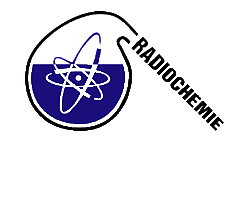Speaker
Mr
Grzegorz Romanczyk
(University of Gdansk)
Description
The natural radionuclide polonium is daughter of 238U decay series. 210Po is radionuclide with half-lives of 138.38 days. Polonium is one of the most radiotoxic natural radioactive isotopes to man due to its high specific activity and its emission of high-LET alpha radiation. Less than 0.05 g of the radionuclide is considered a lethal dose (LD50/30). Man is exposed to radioactive 210Po by natural processes, mainly from the oral intake of foodstuff and drinking water. Especially large amounts of polonium are taken in during cigarette smoking as well as food of marine products. The large amounts of polonium are observed in protein-rich food, such as shellfish and crustaceans, and also observed among populations consuming large amount of reindeer and caribou meat, e. g. in Subarctic area.
The aim of this study was to establish the polonium 210Po concentrations in blood samples and urine. Healthy urine and blood are not toxic. However, there contains compounds eliminated by the body as undesirable. The tested group constituted patients from Medical University of Gdansk and volunteers from Tricity aglomeration. Eating fish and cigarette smoking are factors that according to many researchers affects the amount of this radionuclide in the human body. The questions about smoking and frequency of fish eating were included in questionnaire for the patients and volunteers. This is very important because human biomonitoring of 210Po has been conducted for a long time, but it is still not fully known and understood.
The human blood samples about volume 10 ml were collected from 43 patients ischaemic heart disease (IHD) from Medical University of Gdansk. The reason for choosing this particular group was purely accidental. The urine samples were collected from 37 volunteers from Tricity agglomeration (Gdansk, Sopot, Gdynia). Urine samples were collected throughout the day. The daily amount of urine excreted by volunteers ranged from 600 to 3500 ml. The research was approved by the Independent Bioethics Committee for Scientific Research of the Medical University of Gdansk.
The results of this work indicate that the activity of 210Po in human blood and urine was in the wide range between 140±14 mBq and 888±36 mBq in total blood without two patients (3072±270 mBq and 2901±245 mBq in total blood) and from 1.48±0.09 mBq to 19.41±0.81 mBq in urine samples respectively. The higher activity of this radionuclide was observed for smoker and ex-smoker groups. The patients and volunteers were subdivided in groups: males and females, cigarette smokers, non-smokers and ex-smokers were taken into account. The results indicated that the 210Po activity was widely distributed in the each group of analyzed patients and volunteers. The difference between 210Po activities in human blood and urine of ex-smokers/smokers and eating habits is statistically significant. The obtained results of 210Po activity in the human blood and urine are probably related to the consumption of fish and smoking. Human sex and age had no effect on excretion of polonium from the urine during the day.
Primary author
Mr
Grzegorz Romanczyk
(University of Gdansk)
Co-authors
Dr
Alicja Borylo
(University of Gdansk)
Prof.
Bogdan Skwarzec
(University of Gdansk)

